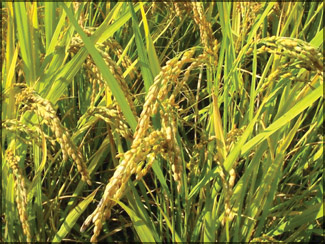RICE: Economic boom or bust? Part IX
Bojoon.com and CIC has teamed up to review one of the most
controversial debates of Sri Lanka - is rice as an industry worth the
effort.
The discussion so far...
Rice as an industry comes under heavy fire as unprofitable notes
Senior Consultant Researcher of CIC Agri Businesses, Dr. Sumith
Abeysiriwardena. Yet, he points out, instead of being abandoned as such,
rice production over the last 6 decades has increased by 12 times! increased by 12 times!
He points out the tremendous demand for rice; ease of handling the
grain and it being the only crop that can be grown in marshy lands. He
continues that with our technology and our unique hydraulic systems our
productivity is high and asserts that history has proven that rice is
more than our staple, but also our stronghold against our many enemies.
He describes while other countries has made a viable export and
domestic industry, we have decreased our rice consumption for wheat,
making us economically vulnerable. He feels that though buffer stocks
provide a good solution to stabilise our staple, especially with
agriculture being such a vicious cycle. Our neighbours’ plans and
actions certainly seem to be reciprocating his very thoughts.
MD/CEO of Agri Businesses Keerthi Kotagama, calculates that even with
the best estimates, a rice shortage is imminent at least at the tail end
of year 2008, and a buffer stock is the only solution to address this
immediate problem. Kotagama continues that with increased production of
ethanol due to increasing fuel prices and globalisation, the world is
about to face a severe rice shortage.
The discussion continues:
If Sri Lanka accurately asserts the reasons for the rise in rice
shortages globally and more importantly if Sri Lanka acts strategically,
this could well be one of the key turning points in contemporary
agriculture of Sri Lanka notes Kotagama and the rice industry could well
become one of the more profitable foreign currency revenues to the
country.
Rice, more than any other commodity, has a special significance in
the Asian household. Even with other staples such as tubers, pulses and
yams available at much cheaper prices, rice as the base of the Asian
diet is an uncompromising requirement. In Asia, the terminology to ‘eat’
is actually to ‘eat rice’ (bath kamu).
Thus, the increasing shortages will not only have an economic impact,
but also a psychological impact on Asia, analyses Kotagama. Already, in
many Asian countries it is causing a near hysteria, causing major global
rice suppliers like India and China scramble to protect their rice
supplies by imposing strict controls on their export market.
However, this very short-term vision solutions to curb inflation have
already begun to have long-term repercussions. Today, countries are ever
so linked with one another for its vital effects. Hence, a disruption of
this nature has a ripple effect globally.
Though theoretically a ban or control on exports should lead to a
surplus in the domestic market, which in turn should reduce the domestic
prices, it rarely happens so, notes Kotagama. Using world prices as a
benchmark, traders are not interested in selling for a lesser price and
simply hold on for better times. With less coming into the market,
prices soar, further fuelling panic.
Perhaps the Asian family is affected most for it is already spending
more than double a European family does on its food. As governments
impose controls on their exports, effecting supply, traders tend to
hoard rice leading to price surges in both the domestic and export
markets.
Though traders are often seen as criminals and even punished as such
for rice hoarding in countries like Philippines, cutting on exports is
also a form of hoarding by governments, points out Kotagama. Though the
intentions are honourable and are done in the light of country’s
interests, the effects are the same. Hoarding leads to panic and this
leads to increased prices, further inflating inflation.
Rice shortage is a problem that is not only going to be contained
within Asia, continues Kotagama. The high prices and the shortages will
also affect the rest of the world - especially the poorest countries.
Most of the African countries depend on Asian surpluses for its
survival.
The more Asia tries to contain their rice within the country, the
more of a shortage it will create in counties like Africa.
Organisations focused on food programs are especially going to feel
the crunch as they are going to require more funds to buy the same
amount of rice. |

